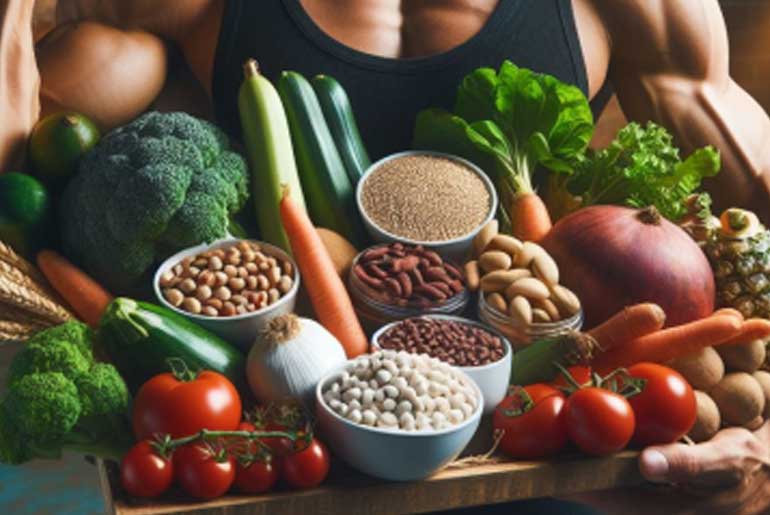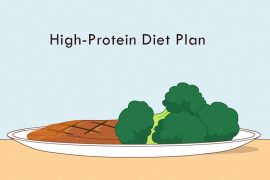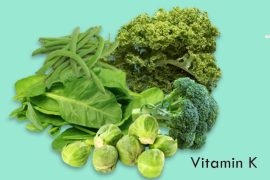Plant-based foods can be highly effective for boosting muscle growth due to their rich nutrient profiles and protein content. Key options include lentils, which provide a solid protein source and essential amino acids; chickpeas, known for their high protein and fiber content; quinoa, a complete protein containing all nine essential amino acids; hemp seeds, which offer a good balance of protein and healthy fats; tofu, a versatile soy product rich in protein and calcium; and edamame, young soybeans packed with protein and essential nutrients. Incorporating these foods into a balanced diet can support muscle development and overall performance while adhering to a plant-based lifestyle.
Plant-based diets can support muscle growth and enhance athletic performance by providing essential nutrients, antioxidants, and plant proteins. Here are six plant-based foods that are particularly effective for boosting muscle growth and enhancing performance:
Quinoa
- Nutritional Profile: Quinoa is a complete protein, meaning it contains all nine essential amino acids necessary for muscle repair and growth. It is also high in carbohydrates, which provide energy for workouts, and rich in vitamins and minerals such as magnesium and iron.
- Benefits: The complete protein content helps in muscle recovery and growth, while the carbohydrates fuel intense physical activity. Quinoa is also easily digestible and versatile in various dishes.
Lentils
- Nutritional Profile: Lentils are packed with protein, fiber, iron, and B vitamins. They contain a good amount of protein per serving, though they are not a complete protein, pairing them with other protein sources can provide all essential amino acids.
- Benefits: The high protein and fiber content support muscle repair and satiety, while the iron helps maintain energy levels and endurance. Lentils are also low in fat and can be easily incorporated into soups, stews, and salads.
Chickpeas
- Nutritional Profile: Chickpeas are a rich source of protein and carbohydrates. They also provide fiber, folate, and manganese. Like lentils, they are not a complete protein but can be combined with other plant proteins.
- Benefits: Chickpeas support muscle growth and recovery due to their high protein content. They also help stabilize blood sugar levels and provide sustained energy. Chickpeas can be used in a variety of dishes, from hummus to salads and stews.
Hemp Seeds
- Nutritional Profile: Hemp seeds are a complete protein source, providing all essential amino acids. They are also rich in healthy fats, including omega-3 and omega-6 fatty acids, and contain a good amount of magnesium and zinc.
- Benefits: The complete protein and healthy fats support muscle repair and overall health. Omega-3 fatty acids help reduce inflammation and promote recovery, while magnesium aids in muscle function and energy production.
Edamame
- Nutritional Profile: Edamame, or young soybeans, are high in protein, fiber, and essential amino acids. They also provide vitamins like vitamin K and folate, as well as minerals such as iron and calcium.
- Benefits: The high protein content aids in muscle growth and recovery. Edamame also provides a significant amount of antioxidants and essential nutrients that support overall performance and health.
Chia Seeds
- Nutritional Profile: Chia seeds are an excellent source of protein, fiber, and omega-3 fatty acids. They also contain calcium, magnesium, and antioxidants.
- Benefits: The combination of protein and omega-3 fatty acids helps in muscle repair and reduces inflammation. The high fiber content supports digestive health and provides sustained energy.
Peas
- Nutritional Profile: Good source of protein, fiber, vitamins (A, C, K), and minerals (iron, magnesium).
- Benefits: Aids in muscle growth and recovery, supports overall health, and provides a balanced nutrient profile.
Incorporating these plant-based foods—quinoa, lentils, chickpeas, hemp seeds, edamame, and chia seeds—into your diet can effectively support muscle growth and enhance performance. They provide essential proteins, healthy fats, and important nutrients that contribute to overall health and athletic performance.
Disclaimer:
The information contained in this article is for educational and informational purposes only and is not intended as a health advice. We would ask you to consult a qualified professional or medical expert to gain additional knowledge before you choose to consume any product or perform any exercise.







